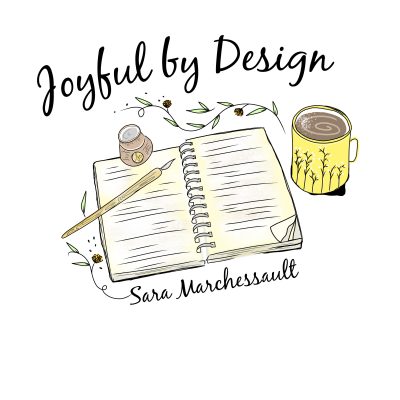 There is a very real block that some of us have when it comes to journal writing. It’s a significant block, one that can stop us before we even start.
There is a very real block that some of us have when it comes to journal writing. It’s a significant block, one that can stop us before we even start.
We are afraid of being discovered. This fear of discovery freezes our pen mid stroke.
Our fear creates the possibility that we might alter our version of the truth to spare the feelings of another. We might stop writing altogether. If we stop and delay starting again, we are cheating ourselves of the benefits of journal writing.
I’ve been asked about this block to journaling several times recently. One question received via email was specifically this: Sometimes I have a hard time journaling because I don’t feel like I can be completely honest. I’m worried that it would be found and read or that if something happened to me it could possibly be made somewhat “public” among friends and family. How do you completely let go? I can guarantee if I were to let go in a journal and it were found, feelings would be hurt.
My response:
I totally know what you mean. I have thought many times about what would happen if Brian were to read my journals. He knows where they are, and honestly for all I know, he has read them (he’s never dropped any hints that he has, and I think I would be able to tell).
I let my first husband read one of my journals once, at his request, and in all seriousness I think that might have been the beginning of the end. He judged me based not only on what I wrote, but the quality of the writing. Not so nice. To me it was a great act of vulnerability and to him, it was fuel for his constant condescension. He would pick on me for writing as often as I did. I went to great lengths to hide not only the journal itself, but also that I was even keeping one.
Over time I noticed, like you said, that I wasn’t being completely honest. It still felt good to process in my journal, but the benefits weren’t what they could have been.
I tried alternatives. I went to therapy and I felt genuinely safe there. I could say whatever I wanted and wouldn’t be judged or criticized. I started working out, which was good, but didn’t give me the same benefits as journal writing. Neither was the right solution for me.
My journal is the place where I let go, write what I think, and be completely honest. It was a huge problem for me when I felt like my journal was no longer a safe place. I needed the processing space and the safety of it being completely my own. Not to mention the benefit of having a running record of my life.
One day, I had the idea to write a disclaimer, and that has made a huge difference in my comfort level. I put it at the front of each of my journals. It’s a love letter (I went back and added it to my old journals after I realized I should do this) and it reads something like this:
Dear Loved One,
Chances are good that if you’re reading this, my physical life has ended. Chances are good too that you are grieving and are turning to these journals as a way to feel connected to me, to know me a little better, and maybe even to learn a few of my deep dark secrets.
Of course, if this isn’t the case then you are snooping around and I urge you to stop and think about whether or not you’re really ready for this. Think about whether or not you will be able to continue to love and respect me after reading about my journey as a fellow human being. Remember, we all have dark and light, and my journal houses a great deal of both.
My journals are the one place where I am truly myself. I do not apologize for the things I have written here. This is where I have processed emotions, made decisions, and grown as a person since the tender age of 11.
If you are close enough to me to have access to these journals, then you are someone I love deeply. I trust you to keep that in mind if you choose to read through the warehouse of my mind and heart.
Love, Sara
A disclaimer can be written on the first few pages of your journal, printed out and taped to the inside cover, written on an index card and inserted in the front, put on paper larger than your journal so that it sticks out, whatever you need to do to feel like you are making the disclaimer up-front and obvious.
Another option is to use an online or digital journal that can be password protected. For more information on digital options, click here.
If you are new to the process of journal writing, or you are getting back to it, it might take you some time to figure out what works best for you as far as a comfort level and where you store your journal. You might end up keeping your journal in your purse, or some other place that only you have access to.
Over time it might change, but it also might not. That is totally fine. This is about comfort and peace of mind. My journal is literally like a teddy bear. I keep it with me when I need to feel safe. I have developed a habit of purchasing bags that are always big enough to hold at least one journal. Just in case I decide I need it with me for extended periods of time.
How about you? What do you do to keep your journal writing practice feeling safe and sound (to the degree that it’s important to you)? Leave a comment in the space below and share your insights and best practices.
Related Posts
Break the rules and plan your fun first
This year I’ve been slow to start. Each time I started to go down…
3 tips & 7 ideas to get away
There’s a great line at the beginning of the movie Gladiator, when the character…
1 COMMENT
Leave A Comment
This site uses Akismet to reduce spam. Learn how your comment data is processed.



Marilee Emerson | 17th Jul 13
Simply BRILLIANT! I’ll be printing up some disclaimers this weekend!